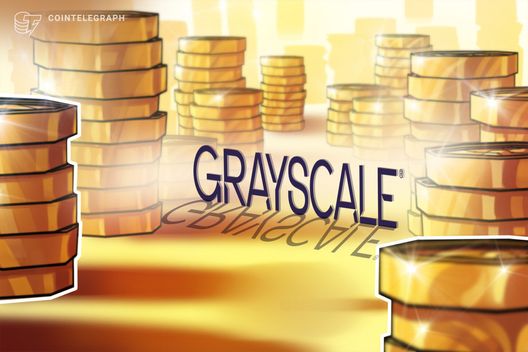In a significant development for the cryptocurrency industry, Grayscale has emerged as a trailblazer by becoming the first U.S. crypto fund issuer to introduce staking options for its Ethereum and Solana exchange-traded products (ETPs). This innovative move not only highlights Grayscale’s commitment to enhancing user engagement but also signifies a growing trend toward integrating staking functionalities within traditional financial products.
Staking, which allows investors to earn rewards by holding and supporting network operations, has gained momentum in recent years, especially among proof-of-stake blockchains like Ethereum and Solana. By offering staking on its ETPs, Grayscale is seeking to provide investors with the dual benefits of price exposure and potential income generation, further aligning with the evolving landscape of digital asset investment.
“This initiative marks a pivotal moment in bridging the gap between cryptocurrency and conventional investing, paving the way for greater institutional access to innovative crypto strategies,” said a Grayscale spokesperson.
As regulatory scrutiny and market maturation continue to shape the crypto sector, Grayscale’s decision to incorporate staking into its products reflects a broader acceptance of digital assets. It underscores the importance of adaptability in an increasingly competitive market, bolstering the case for cryptocurrencies as viable investment vehicles.
Grayscale Launches Staking for Ethereum and Solana ETFs
Key points regarding Grayscale’s recent development in the crypto fund sector:
- Pioneering Staking Options: Grayscale is the first US crypto fund issuer to offer staking in its exchange-traded products (ETPs).
- Ethereum and Solana Focus: The staking services are specifically offered for Ethereum (ETH) and Solana (SOL), two significant players in the cryptocurrency market.
- Enhanced Yield Opportunities: By introducing staking, Grayscale enables investors to potentially earn additional returns on their investments in ETH and SOL.
- Impact on Institutional Adoption: This move may encourage more institutional investors to participate in the crypto market, perceiving it as a more stable and profitable investment avenue.
- Regulatory Implications: As the first issuer to provide such a service, Grayscale may set a precedent for regulatory standards and practices concerning crypto fund management.
The introduction of staking can transform how investors approach digital assets, potentially leading to increased participation and investment in the crypto ecosystem.
Grayscale’s Innovative Leap in Crypto Investments
Grayscale’s recent move to become the first US crypto fund issuer to integrate staking within its Ethereum and Solana exchange-traded products marks a significant milestone in the cryptocurrency investment landscape. This development places Grayscale ahead of competitors, as it not only enhances the potential returns for investors but also aligns with the growing trend of passive income opportunities in digital assets.
One of the most compelling competitive advantages of Grayscale’s initiative is the ability to offer yield through staking, which can attract both seasoned investors and newcomers looking to maximize their returns. This feature is particularly appealing as it enables investors to earn rewards for simply holding their assets in Grayscale’s products rather than actively trading them. Moreover, the incorporation of both Ethereum and Solana caters to a wider range of investor interests, capitalizing on the unique strengths of each blockchain.
However, there are potential disadvantages that Grayscale needs to navigate. The regulatory landscape surrounding staking rewards can be uncertain, and any potential compliance hiccups could tarnish Grayscale’s reputation as a pioneer in the space. Additionally, competitors such as BlockFi and Coinbase are also looking to leverage staking, which may dilute Grayscale’s market share if they can offer similar or even enhanced staking options with lower fees or more favorable conditions.
This development could significantly benefit retail investors and institutional clients seeking diversified crypto investment options. On the flip side, it poses challenges to traditional financial institutions that may view Grayscale’s innovative approach as a threat to their investment products. As the market becomes increasingly competitive, these institutions might need to adapt or enhance their offerings to retain client interest.
















